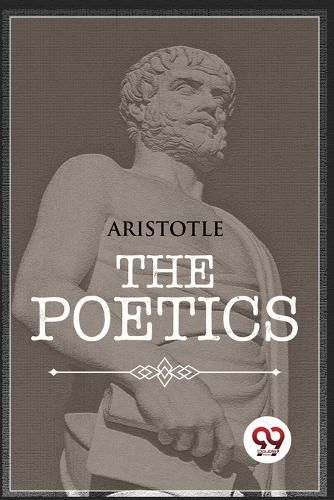Readings Newsletter
Become a Readings Member to make your shopping experience even easier.
Sign in or sign up for free!
You’re not far away from qualifying for FREE standard shipping within Australia
You’ve qualified for FREE standard shipping within Australia
The cart is loading…






This title is printed to order. This book may have been self-published. If so, we cannot guarantee the quality of the content. In the main most books will have gone through the editing process however some may not. We therefore suggest that you be aware of this before ordering this book. If in doubt check either the author or publisher’s details as we are unable to accept any returns unless they are faulty. Please contact us if you have any questions.
The first known work of Greek theatrical philosophy is Aristotle's Poetics. The concentration on literary theory makes it the first existing philosophical book to do so. Aristotle categorizes poetry into three categories: lyric poetry, epic poetry, and verses theatre. Although the text is widely accepted in the Western critical tradition, there has been a lot of scholarly discussion over it.According to Aristotle, poetry must have five essential elements in order to be considered well-written. Tragic poetry is seen as being superior than epic poetry since it has all of the elements of the epic, including the usage of the epic meter. Good, relevant, realistic, and consistent characters are a necessary; discovery must take place inside the storyline. The tragic style of poetry is more enjoyable and has a more concentrated impact than one that uses a lot of time to dilute it. A single epic poem can serve as the basis for several tragedies, although imitations of epic poets tend to lack cohesion. Such poetry approximates a knowledge of universals, making it more philosophical than historical.
$9.00 standard shipping within Australia
FREE standard shipping within Australia for orders over $100.00
Express & International shipping calculated at checkout
This title is printed to order. This book may have been self-published. If so, we cannot guarantee the quality of the content. In the main most books will have gone through the editing process however some may not. We therefore suggest that you be aware of this before ordering this book. If in doubt check either the author or publisher’s details as we are unable to accept any returns unless they are faulty. Please contact us if you have any questions.
The first known work of Greek theatrical philosophy is Aristotle's Poetics. The concentration on literary theory makes it the first existing philosophical book to do so. Aristotle categorizes poetry into three categories: lyric poetry, epic poetry, and verses theatre. Although the text is widely accepted in the Western critical tradition, there has been a lot of scholarly discussion over it.According to Aristotle, poetry must have five essential elements in order to be considered well-written. Tragic poetry is seen as being superior than epic poetry since it has all of the elements of the epic, including the usage of the epic meter. Good, relevant, realistic, and consistent characters are a necessary; discovery must take place inside the storyline. The tragic style of poetry is more enjoyable and has a more concentrated impact than one that uses a lot of time to dilute it. A single epic poem can serve as the basis for several tragedies, although imitations of epic poets tend to lack cohesion. Such poetry approximates a knowledge of universals, making it more philosophical than historical.